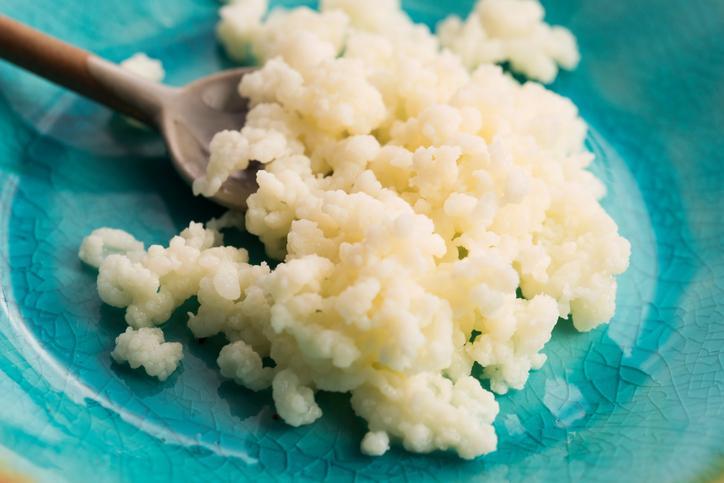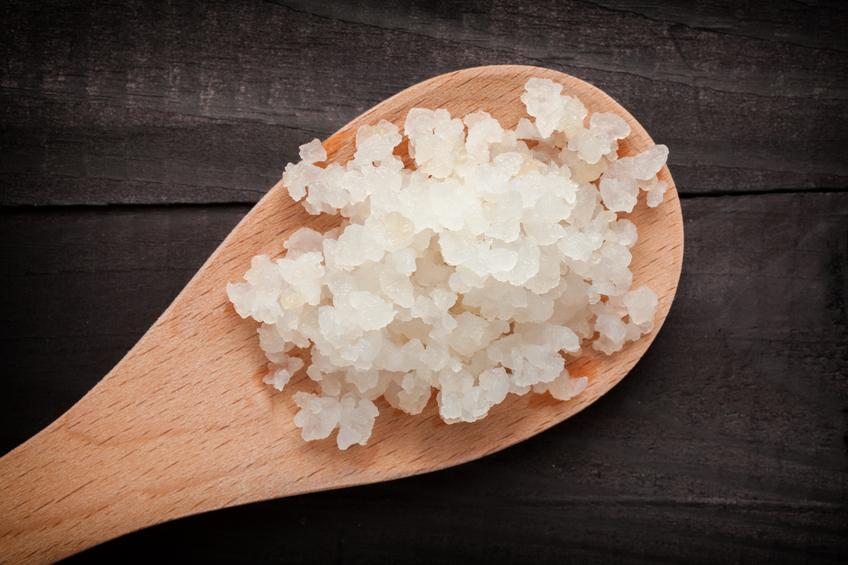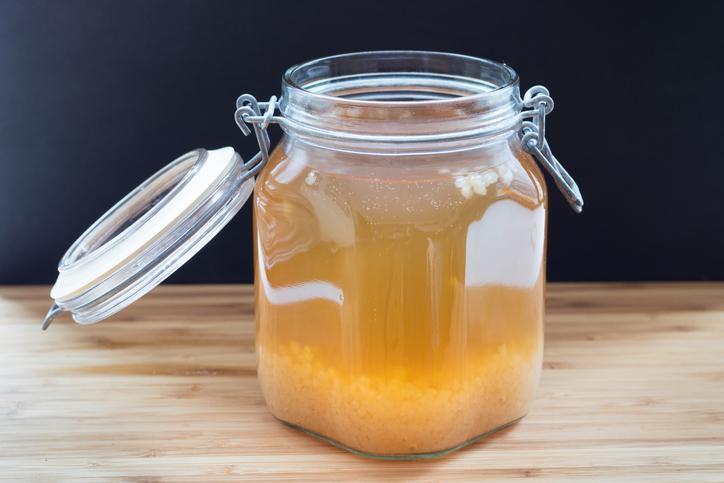Can Dogs Eat Kefir?



See files for Dogs
The advance of veterinary medicine has allowed us to currently verify the numerous benefits of probiotics for our dogs. While there are commercial supplements that can offer such probiotic action, natural probiotic ingredients are always considered better options for our animals, such as kefir. kefir is a natural fermented beverage obtained from a microflora composed mainly of beneficial bacteria. In the past, this fermented drink was often used to aid the treatment of tuberculosis or stomach disease. In recent decades, this natural fermented probiotic drink regained popularity in human diets and became highly recommended by nutritionists. Kefir originates from the Caucasus Mountains in West Asia.
If kefir is good for humans, then surely one may ask if it holds the same benefits for their dogs. For this reason, in this AnimalWised article we aim to tell you what kefir is, discuss its properties and benefits and ultimately answer the question, can your dog eat kefir?
Why are probiotics important for dogs?
Just like us, our dogs have an intestinal flora which are composed from a set of beneficial bacteria, which are essential to carry out healthy digestion. This microbiota however, not only intervenes in digestion, but also in the metabolic and immunity systems of our dogs. This is because microbiota ensures the assimilation of essential nutrients, vitamins and minerals.
Probiotics offer a strain of beneficial bacteria for our dogs (such as lactobacillus), naturally found in intestinal flora. By supplementing our dog’s diet with these microorganisms, we can help: strengthen their natural defenses, prevent the proliferation of pathogenic bacteria in their digestive tracts, optimize nutrient absorption and prevent gastrointestinal discomfort, such as excessive gas formation and diarrhea.
As we have mentioned, you can find probiotic supplements in natural product stores and even in some veterinary clinics. However, we recommend offering natural probiotics to your dog. Some natural probiotics include: kefir, some soft cheeses, buttermilk and yogurt. However, it is incredibly important that you consult your doctor before offering your dog any new probiotic.
What is kefir?
Kefir is a natural probiotic food obtained from the fermentation of small grains that contain a bacterial microflora (bacteria, fungi and beneficial yeasts). Among the beneficial bacteria that make up these so-called granules or kefir nodules we can find:
- Lactobacillus delbrueckii subsp. bulgaricus
- Lactobacillus helveticus
- Lactobacillus casei subsp. pseudoplantarum
- Lactobacillus brevis
- Lactococcus lactis subsp. lactis
- Streptococcus thermophilus
The presence of beneficial fungi and yeasts in kefir granules is apparent. These fungis include: Saccharomyces cerevisiae, Candida inconspicua and Kluyveromyces marxianus [1].
There are commonly three main types of kefir: water, milk and kombucha otherwise know as tea kefir. But, in reality, kombucha is requires a different form of fermentation, which involves different microflora and demands a special process. Therefore, the truth is that there are only two types of kefir: water kefir and milk kefir.
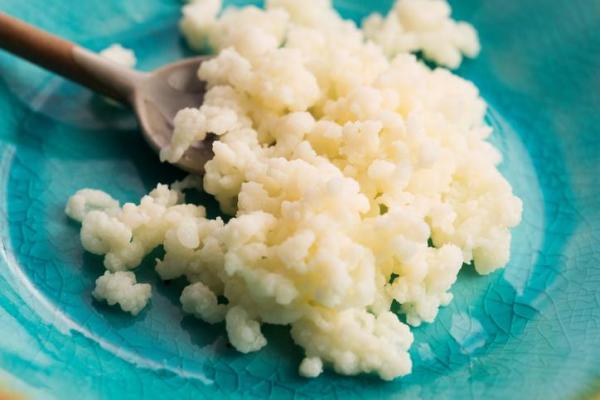
Which is better for dogs, water kefir or milk kefir?
Milk kefir is called several different names depending on the country which you are in.
Milk kefir is undoubtedly the most popular and consumed kefir worldwide. This is perhaps due to its taste and texture which is very similar to that of traditional yogurt. On the other hand, water kefir has a microflora almost identical to that of milk kefir and its properties are very similar and equally beneficial.
The fundamental difference between water kefir and milk kefir is the culture medium, where the microflora develops and carries out its natural fermentation process. Water kefir is dairy-free and often made with water, fruit juice or coconut water. Milk keffir on the other hand contains dairy and does not include additional flavourings.
Benefits of kefir for dogs
As a natural probiotic, kefir is an excellent ally in the race to achieve healthy digestion. This natural probiotic favors intestinal transit and prevents numerous digestive discomforts or problems, such as: constipation, food intolerance and gases. Its beneficial bacterial strain allows intestinal flora to preserve its integrity and improve its digestive process. It also optimises the assimilation of essential nutrients, vitamins and minerals. Therefore, kefir is also considered an effective natural supplement which can aid in strengthening the immune system and preventing numerous diseases and health problems [2], such as:
Can I give my dog kefir?
Yes! Dogs can really benefits from the helpful properties of kefir! However, it is essential to consult your veterinarian before making any changes to your dog’s diet. A professional can also guide you when it comes to the administration of natural probiotics for dogs. They can establish an appropriate dose for your dog according to its: size, weight, age and health status.
Although kefir milk is more popular, water kefir offers the same benefits and in fact holds an advantage for dogs who are intolerant or allergic to lactose. Therefore, we recommend offering your dog water kefir, since dairy products are among the main food allergens for dogs. We believe water kefir is a the best probiotic option for your pup. Another advantage of water kefir granules is that they require relatively simple care, making them easier to preserve.
Where can I get kefir grains?
Nowadays it is possible to find kefir drinks in some natural stores or supermarkets (in some countries). You can also purchase kefir milk or water online. Another option is joining a kefir donation site. Sharing is a common practice among kefir makers, and for this reason, there are online communities that allow for the distribution of kefir grains and cultures.
Although kefir has only recently regained its popularity, it is actually one of the first dairy products consumed by mankind. You can find mentioning of kefir in traditional Muslim culture, where it was used as a sacred and healing drink. At this time, kefir was only cultivated by the muslim community and its formula was kept secret. This is because it was believed that this sacred food could not be consumed by members of other religions.
It is estimated that Marco Polo was the first Western man to show particularly interested in kefir properties, having mentioned this probiotic in some of his writings. And finally, in the nineteenth century, kefir was included in Western medicine. It was used as a natural remedy to relieve tuberculosis symptoms, which at that time didn’t have a cure [3].
This kefir history is necessary to know in order to understand why there is a promotion of donating kefir, rather than its commercialisation. Donation of this cultured and fermented milk is practiced in order to generate a circle of learning that guarantees the survival of this cultural tradition. For this reason, the best way to obtain water or milk kefir nodules is by using a kefir donation network.
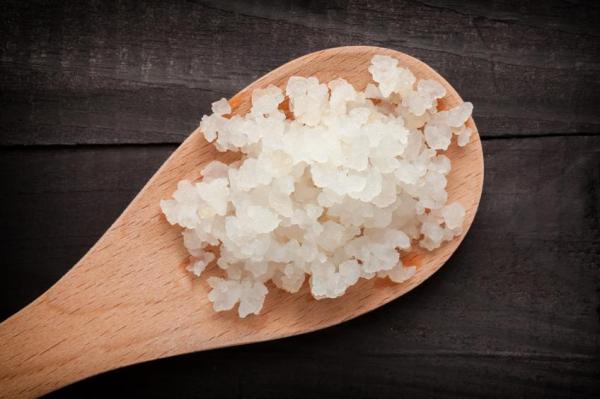
How to make water kefir?
We can conclude that dogs can drink kefir. In addition, water kefir is the simplest and fastest kefir option for our dogs. The process of making and fermenting water kefir is fairly simple and does not require a large amount of effort or care. Below, we offer you a simple step by step guide on how to prepare water kefir for dogs, including which materials are essential for this process.
Ingredients and materials (for about 1 l of kefirada water)
- 3 tablespoons water kefir nodules
- 1 liter of clean water at room temperature (without the addition of chlorine)
- 2 tablespoons of pure honey
- 1 dehydrated fruit (you can use figs, plums or dates, always without their seeds and bones)
- ½ lemon juice
- Glass jar with a wide mouth
- Plastic strainer
- Wooden or silicone spoon (not metal!)
- It is important to guarantee that the containers and materials used in this process do not contain metal. Metal elemants will elements interfere in the fermentation process of the water kefir nodules.
Process
- Take the glass jar and add 1 liter of non-chlorinated water.
- Then, add the other ingredients and mix or shake well until it is all completely diluted in the water.
- Once this first part is completed, do not close the glass jar, as the fermentation process will generate gas. To prevent the beverage from being contaminated by any impurity or insect, you can use a piece of fine mesh and tie it over the jar with an elastic or a thread.
- Once these steps have been completed, it is enough to leave the preparation to rest for two or three days (until the fermentation process is successfully concluded). But it is important to ensure that the temperature of the environment is between 15 ° C and 30 ° C to preserve the life of the microflora that make up the kefir nodules.
Before giving your dog kefir water, you must remember to remove the kefir nodules from inside the mixture. You will notice that the microflora will reproduce and more nodules will be present. You can use some of these grains to make more kefir or you can donate some to the kefir community.
Feeding your dog kefir is easy. All you have to do is pour the probiotic water into its bowl, like you would with normal water. In general, dogs take well to kefir water.
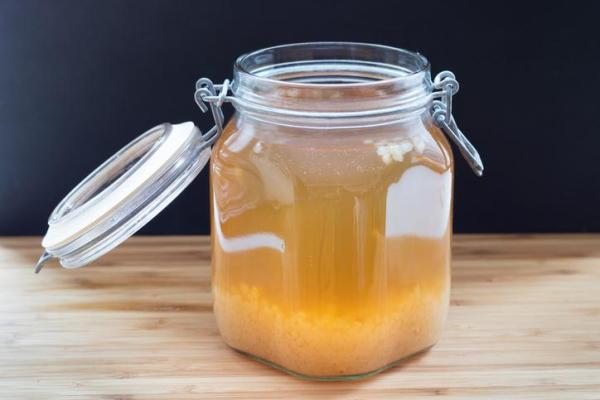
Kefir dose for dogs
Regular consumption of kefir and natural probiotics is very beneficial for our pets, as long as they receive a proper dose. In general, the recommended dose of kefir for dogs is proportional to the weight of each animal. The basic calculation is similar for all natural probiotics: 1 tablespoon for every 15 or 20 kg.
However, it is essential to consult a veterinarian before including any supplement in your dog's diet. A professional can guide you on the appropriate amount for your dog. They can also recommend the best form of administration according to the purpose of the consumption and your dog’s health status.
Other probiotic options for dogs
If for whatever reason you don’t wish to offer your dog kefir , here is a list of other recommended natural probiotics for your dog:
- Apples
- Mushrooms
- Bananas
- Microalgae, an ocean based superfood
- fermented vegetables like Sauerkaut
All of these options have to be given to your dog in moderation. Therefore, we strongly suggest consulting a doctor before offering your dog any of these recommended probiotic foods.
If you want to read similar articles to Can Dogs Eat Kefir?, we recommend you visit our Homemade diets category.
- Prado, Maria R.; Blandón, Lina Marcela; Vandenberghe, Luciana P. S.; Rodrigues, Cristine; Castro, Guillermo R.; Thomaz-Soccol, Vanete; Soccol, Carlos R. Milk kefir: composition, microbial cultures, biological activities, and related products. Frontiers in Microbiology. 30 de octubre de 2015.
- Oliveira Leite A., Miguel M., Peixoto RS, Rosado AS, Silva JT, Paschoalin VMI (octubre de 2013). Microbiological, technological and therapeutic properties of kefir: a natural probiotic beverage. Braz J Microbiol 44 (2): 341-9
- Ing. Agustín Tello Robles Tello. Características principales de una leche fermentada. Consultado el 5 de julio de 2012.







